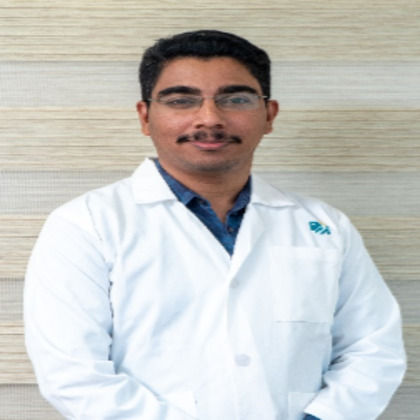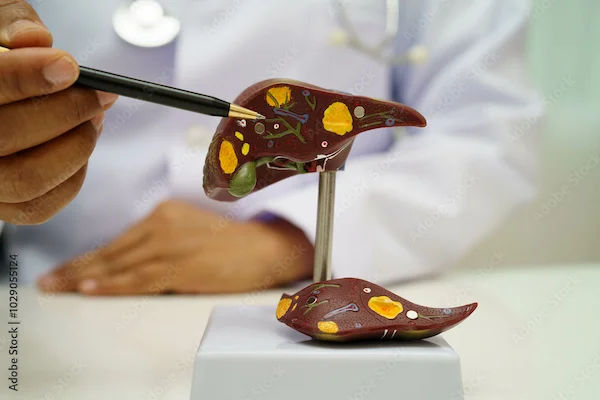How To Do Liver Transplant?
Learn how liver transplant is performed, including the step-by-step procedure, eligibility criteria, recovery process, and key facts to help patients and families understand this life-saving surgery.

Written by
Last updated on 3rd Jul, 2025
Introduction
A liver transplant is a surgical procedure that replaces a diseased or failing liver with a healthy one from a donor. It is often the last resort for patients with severe liver damage who haven’t responded to other treatments. If you or a loved one is considering a liver transplant, it’s natural to have questions. This guide will help you understand the process, what to expect, and how to prepare for this life-changing surgery.
When Is a Liver Transplant Needed?
A liver transplant becomes necessary when the liver can no longer function properly due to chronic or acute conditions. Some common reasons include:
Cirrhosis (scarring of the liver due to long-term damage)
Liver cancer (in certain cases)
Acute liver failure (sudden loss of liver function)
Genetic liver diseases (such as Wilson’s disease or hemochromatosis)
Biliary atresia (a condition in infants where bile ducts are blocked)
If medications, lifestyle changes, or other treatments fail, a transplant may be the only option to restore health.
Types of Liver Transplants
There are two main types of liver transplants:
1. Deceased Donor Transplant: The liver comes from a person who has recently passed away but was a registered organ donor.
2. Living Donor Transplant: A healthy person (usually a family member) donates a portion of their liver. The liver regenerates in both the donor and recipient over time.
The Liver Transplant Process: Step by Step
The liver transplantation procedure is as follows:
1. Evaluation & Eligibility
Before being placed on a transplant list, you’ll undergo a thorough medical evaluation, including:
Blood tests
Imaging scans (like MRI or CT)
Heart and lung function tests
Psychological assessment
The transplant team will determine if you’re a suitable candidate based on your overall health and severity of liver disease.
2. Waiting for a Donor
If approved, you’ll be placed on a national transplant waiting list. The wait time depends on:
Blood type
Body size
Severity of liver disease (measured by MELD score)
Living donor transplants can reduce waiting time significantly.
3. The Transplant Surgery
The surgery typically takes 6–12 hours. The damaged liver is removed, and the new liver (or a portion of it) is connected to blood vessels and bile ducts.
4. Recovery & Aftercare
After surgery, you’ll stay in the hospital for 1–3 weeks. Recovery includes:
Immunosuppressants (medications to prevent organ rejection)
Regular follow-ups with your doctor
Monitoring for complications like infections or rejection
Full recovery may take several months, but most patients return to normal activities within a year.
Consult Top Specialists for Personalised Tips
Life After a Liver Transplant
A successful liver transplant can dramatically improve quality of life. However, lifelong care is essential:
Take prescribed medications (especially immunosuppressants)
Follow a healthy diet (low in salt, sugar, and processed foods)
Avoid alcohol and smoking
Exercise regularly (as advised by your doctor)
Attend all medical check-ups
How to Support a Loved One Through a Liver Transplant?
If someone you know is undergoing a liver transplant, you can help by:
Offering emotional support
Assisting with post-surgery care
Encouraging a healthy lifestyle
Helping them stay compliant with medications
When to Seek Medical Help?
After a transplant, contact your doctor immediately if you experience:
Fever or chills
Jaundice (yellowing of skin/eyes)
Severe pain or swelling
Difficulty breathing
Conclusion
A liver transplant is a complex but life-saving procedure that offers hope to patients with end-stage liver disease. With advancements in medical science, success rates are high, and many recipients go on to live healthy, fulfilling lives. If you or a loved one is considering a liver transplant, consult a specialist to discuss the best options. Remember, early intervention and proper care can make all the difference. Stay informed, stay hopeful, and take charge of your health!
Consult Top Hepatologist
Consult Top Hepatologist

Dr. E Prabhakar Sastry
General Physician/ Internal Medicine Specialist
40 Years • MD(Internal Medicine)
Manikonda Jagir
Apollo Clinic, Manikonda, Manikonda Jagir
(125+ Patients)

Dr. Sushith C
General Physician
2 Years • MBBS
Bengaluru
PRESTIGE SHANTHINIKETAN - SOCIETY CLINIC, Bengaluru

Dr. Srinivasa Reddy
Hepatologist
12 Years • MBBS, MD (General Medicine), DM (Hepatology),ASGE
Hyderabad
Myra Liver & Gastro Care, Hyderabad

Dr. Aswin S. Krishna
Hepatologist
10 Years • MBBS, MD (Internal Medicine,MMC), DM (Hepatology, MMC), PDF(Fellowship in Liver Transplanatation)
Chennai
Apollo Hospitals Greams Road, Chennai
(100+ Patients)

Dr. Aakash Garg
Gastroenterology/gi Medicine Specialist
12 Years • MBBS, DNB (Medicine), DrNB (Gastroentrology).
Bilaspur
Apollo Hospitals Seepat Road, Bilaspur
(125+ Patients)
Consult Top Specialists for Personalised Tips

Dr. E Prabhakar Sastry
General Physician/ Internal Medicine Specialist
40 Years • MD(Internal Medicine)
Manikonda Jagir
Apollo Clinic, Manikonda, Manikonda Jagir
(125+ Patients)

Dr. Sushith C
General Physician
2 Years • MBBS
Bengaluru
PRESTIGE SHANTHINIKETAN - SOCIETY CLINIC, Bengaluru

Dr. Srinivasa Reddy
Hepatologist
12 Years • MBBS, MD (General Medicine), DM (Hepatology),ASGE
Hyderabad
Myra Liver & Gastro Care, Hyderabad

Dr. Aswin S. Krishna
Hepatologist
10 Years • MBBS, MD (Internal Medicine,MMC), DM (Hepatology, MMC), PDF(Fellowship in Liver Transplanatation)
Chennai
Apollo Hospitals Greams Road, Chennai
(100+ Patients)

Dr. Aakash Garg
Gastroenterology/gi Medicine Specialist
12 Years • MBBS, DNB (Medicine), DrNB (Gastroentrology).
Bilaspur
Apollo Hospitals Seepat Road, Bilaspur
(125+ Patients)


